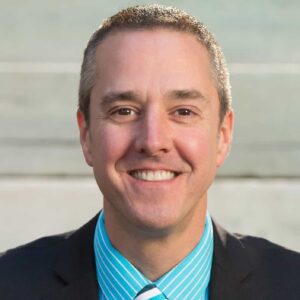Register for The Herbert Benson, MD Course in Mind Body Medicine October 30 – November 2, 2024
Register for The Herbert Benson, MD Course in Mind Body Medicine October 30 – November 2, 2024
Harvard Medical School CME In-Person in Boston, MA AND via Live Streaming
Registration is now open for The Herbert Benson, MD Course in Mind Body Medicine, the Benson-Henry Institute’s celebrated continuing medical education (CME) course, offered in partnership with Harvard Medical School.
The course will be held live, in person at the Fairmont Copley Hotel in Boston, MA and will be livestreamed to participants around the world. Video recordings of all talks will be available to all conference-goers for up to 60 days. BHI is also offering two optional online pre-course workshops, Mind Body Approaches to Weight Management (new!) and Group Medical Visits to Guide Patients to Healthier Lifestyle Behaviors.
“The Herbert Benson Course in Mind Body Medicine is an opportunity for clinicians, researchers, scientists and mind body enthusiasts to explore the latest research and learn the best techniques in mind body medicine. Our work – providing patients with skills to build resilience and improve wellbeing – are essential as we rebound from the pandemic and face a multitude of other stressful challenges at home and abroad. We are so pleased to be able to meet each other again in person this fall, and to provide online streaming to participants around the world. The course provides a wonderful opportunity to connect and collaborate with colleagues around the world,” said BHI Director Gregory Fricchione, MD. “We have an impressive line-up of keynotes and experts in the field, and this year we are offering two exciting optional half-day courses on mind body approaches to weight management and delivering mind body medicine in group visits.”
Keynote speakers are Katarina Blom, MA, positive psychology researcher, author of The Togetherness Effect and star of the NBC show “The Gentle Art of Swedish Death Cleaning;” Chris Palmer, MD, Harvard psychiatrist and researcher working at the interface of metabolism and mental health; Martin Picard, PhD, director of the Mitochondrial Psychobiology Group at Columbia University Irving Medical School, which investigates organelle-to-organism communication linking the human experience with molecular and energetic processes inside mitochondria; and David R. Williams, PhD, MPH, MDiv, Harvard University professor of public health whose research enhances our understanding of the complex ways in which socioeconomic status, race, stress, racism, health behavior and religious involvement can affect health.
This program is among the highest-rated Harvard Medical School CME course. The Harvard Medical School is accredited by the Accreditation Council for Continuing Medical Education (ACCME) to provide continuing medical education for physicians. The Harvard Medical School designates this live activity for a maximum of 25.75 AMA PRA Category 1 Credits™. Physicians should claim only the credit commensurate with the extent of their participation in the activity. For additional accreditation information, please see below.
Participants will get
- The latest clinical approaches and integrative models of care
- Cutting-edge research into the linkages between the brain and the body
- Education on genomics, transcriptomics, metabolomics ad how to leverage recent advances in the neuroimaging of contemplative states
- Current data on stress, stress management and resilience enhancement, and their impacts on patient health and treatment options
For course scheduling, information and to register, please visit mindbody.hmscme.com. Register by September 20th for an early bird discount.
About our Keynotes
 Katarina Blom, PhD, is a happiness psychologist who focuses on how we can create sustainable well-being during times of change. She is the co-author of two books on happiness and stars in the NBC reality series “The Gentle Art of Swedish Death Cleaning” where she helps individuals not only come to terms with mortality but also enrich their lives by forging deeper connections with loved ones through the treasures passed down within their homes. Her TedX Talk, “You Don’t Find Happiness, You Create It,” has been viewed 5 million times.
Katarina Blom, PhD, is a happiness psychologist who focuses on how we can create sustainable well-being during times of change. She is the co-author of two books on happiness and stars in the NBC reality series “The Gentle Art of Swedish Death Cleaning” where she helps individuals not only come to terms with mortality but also enrich their lives by forging deeper connections with loved ones through the treasures passed down within their homes. Her TedX Talk, “You Don’t Find Happiness, You Create It,” has been viewed 5 million times.
In addition to her media work, Dr. Blom is the co-author of two books, Seriously Happy – An Introduction to Positive Psychology and Lonely or Strong – How to Create Successful Teams. She is currently in the process of writing her third book, The We-Brain – The Surprising Science on How Our Connections Make Us Happier, Healthier, And More Resilient.
 Chris Palmer, MD, is a Harvard psychiatrist and researcher working at the interface of metabolism and mental health. He is the Founder and Director of the Metabolic and Mental Health Program and the Director of the Department of Postgraduate and Continuing Education at McLean Hospital and an Assistant Professor of Psychiatry at Harvard Medical School. For almost 30 years, he has held administrative, educational, research, and clinical roles in psychiatry at McLean and Harvard. He has been pioneering the use of the medical ketogenic diet in the treatment of psychiatric disorders—conducting research in this area, treating patients, writing, and speaking around the world on this topic. Most recently, he has proposed that mental disorders can be understood as metabolic disorders affecting the brain, which has received widespread recognition in both national and international media outlets.
Chris Palmer, MD, is a Harvard psychiatrist and researcher working at the interface of metabolism and mental health. He is the Founder and Director of the Metabolic and Mental Health Program and the Director of the Department of Postgraduate and Continuing Education at McLean Hospital and an Assistant Professor of Psychiatry at Harvard Medical School. For almost 30 years, he has held administrative, educational, research, and clinical roles in psychiatry at McLean and Harvard. He has been pioneering the use of the medical ketogenic diet in the treatment of psychiatric disorders—conducting research in this area, treating patients, writing, and speaking around the world on this topic. Most recently, he has proposed that mental disorders can be understood as metabolic disorders affecting the brain, which has received widespread recognition in both national and international media outlets.
Dr. Palmer received his medical degree from Washington University School of Medicine. He did his internship and psychiatry residency at McLean Hospital, Massachusetts General Hospital, and Harvard Medical School.
Dr. Palmer leads McLean Hospital’s Department of Postgraduate and Continuing Education. In this role, he has developed hundreds of educational conferences, workshops, Grand Rounds, and other professional educational activities, most of them under the aegis of Harvard Medical School. His leadership has transformed the department from a small, subsidized department of the hospital into a flourishing educational program that is now leading mental health education for professionals nationwide.
He has held numerous leadership positions in the continuing education field beyond McLean Hospital’s program, including serving on leadership, advisory, and strategic planning committees of Harvard Medical School, Partners Healthcare, the Massachusetts Medical Society, and the Accreditation Council for Continuing Medical Education (ACCME).
Dr. Palmer has been involved in psychiatric research for over 23 years. He has served as a research physician in the Behavioral Psychopharmacology Research Laboratory and the Sleep Research Laboratory, both at McLean Hospital, where he worked with teams pursuing wide-ranging research in the areas of addiction and sleep.
Most recently, his research interests have turned to the areas of metabolism, metabolic disorders, and their connection to mental disorders. Interestingly, the connections are widespread and span across numerous mental and metabolic disorders. He is focused on combining and understanding epidemiological data, basic science research, and clinical studies in order to better understand what role metabolism plays in mental illness.
Dr. Palmer has been pioneering the use of the ketogenic diet and its applications in psychiatry. The ketogenic diet is an evidence-based treatment for epilepsy, and can work in treatment-resistant cases, even after numerous medications and even surgery fail to control seizures. It doesn’t work for everyone, but it does work for a significant percentage of people. It turns out that many anti-epileptic treatments are used routinely in psychiatry, so this dietary intervention should at least be considered in the treatment of mental disorders. Interestingly, the ketogenic diet is a metabolic intervention and has been shown to have profound effects on brain metabolism. These changes may correct some of the metabolic abnormalities found in people with mental disorders. Dr. Palmer has published case studies, pilot clinical trials, and is actively conducting research in this area. He is also working with researchers from around the world to further explore this treatment in clinical populations as well as pursuing more basic science research.
In 2023, Dr. Palmer became the Founder and Director of the McLean Hospital Metabolic and Mental Health Program. This new and innovative program will conduct research exploring the role of metabolism in mental health and the use of metabolic treatments for people with mental health conditions, offfer consultations to McLean Hospital patients who are interested in a metabolic approach, and develop education for healthcare professionals,
Dr. Palmer’s clinical practice has focused on helping people suffering from treatment-resistant mental illnesses, including mood disorders, psychotic disorders, and personality disorders. His treatment approach has been comprehensive and has included psychopharmacology, psychotherapy, and complementary and alternative treatments. However, he has always been looking for better treatments and outcomes because far too many people do not get better with our current approaches.
 Martin Picard, PhD is an Associate Professor of Behavioral Medicine in Psychiatry, Neurology and the Robert N. Butler Columbia Aging Center at Columbia University Irving Medical School. A mitochondrial biologist, Dr. Picard’s world-class research explores the impact of mitochondria in physical and mental health.
Martin Picard, PhD is an Associate Professor of Behavioral Medicine in Psychiatry, Neurology and the Robert N. Butler Columbia Aging Center at Columbia University Irving Medical School. A mitochondrial biologist, Dr. Picard’s world-class research explores the impact of mitochondria in physical and mental health.
Dr. Picard received his BSc Honours in neuroimmunology, and PhD in mitochondrial biology of aging at McGill University. He then moved to the University of Pennsylvania for a postdoctoral fellowship in the Center for Mitochondrial and Epigenomic Medicine with Doug Wallace. There, he worked on mitochondria-mitochondria interactions, mitochondrial reprogramming of the nuclear (epi)genome, and mitochondrial stress pathophysiology along with Bruce McEwen at the Rockefeller University. He joined the faculty of Columbia University in 2015.
Dr. Picard directs the Mitochondrial Psychobiology Group at CUIMC, which investigates organelle-to-organism communication linking the human experience with molecular and energetic processes inside mitochondria. His laboratory has identified novel membrane structures for mitochondrial communication in rare mitochondrial diseases, showed that cell-free mitochondrial DNA (cf-mtDNA) is a psychological stress-inducible molecule detectable in blood and saliva, and developed a mitochondrial health index (MHI) to study the mind-mitochondria connection in immune cells and brain tissue. His group also has established that human hair greying is reversible and linked to life stress, and developed a longitudinal cellular lifespan model that recapitulates trajectories of human epigenetic aging and allostatic load in vitro. Dr. Picard’s translational research program has contributed to defining the diversity of mitochondria across the brain and body, and to longitudinally examining the link between stress, energy expenditure, and the rate of aging at the cellular level.
With their collaborators, investigators and trainees in the Mitochondrial Psychobiology Group combine clinical, cellular, and computational approaches to understand how energetic processes and perturbations within mitochondria interact with key brain-body processes that shape aging biology and sustain human health. Moving beyond the disease focus of biomedicine, Dr. Picard co-leads a Science of Health initiative aiming to define and quantify individualized health states, a necessary step to accelerate the transition towards sustainable healthcare over the next century.
Research on the link between energy, stress, and health from the Mitochondrial Psychobiology Group has been covered in The New York Times, Scientific American, The New Yorker, and on TEDx.
 David R. Williams, PhD, MPH, M. Div. David R. Williams is a St Lucian and American social scientist who has specialized in the study of social influences on health. His research has enhanced our understanding of the complex ways in which race, socioeconomic status, racism, stress, health behaviors and religious involvement can affect physical and mental health. He has been invited to keynote scientific conferences in Europe, Africa, the Middle East, Australia, South America and across the United States.
David R. Williams, PhD, MPH, M. Div. David R. Williams is a St Lucian and American social scientist who has specialized in the study of social influences on health. His research has enhanced our understanding of the complex ways in which race, socioeconomic status, racism, stress, health behaviors and religious involvement can affect physical and mental health. He has been invited to keynote scientific conferences in Europe, Africa, the Middle East, Australia, South America and across the United States.
Dr. Williams is the Florence Sprague Norman and Laura Smart Norman Professor of Public Health, and chair of the Department of Social and Behavioral Sciences at the Harvard T.H. Chan School of Public Health. He is also a Professor of African and African American Studies and of Sociology at Harvard University. His first 6 years as a faculty member were at Yale University where he held appointments in both Sociology and Public Health. The next 14 years were at the University of Michigan where he was the Harold Cruse Collegiate Professor of Sociology, a Senior Research Scientist at the Institute of Social Research and a Professor of Epidemiology in the School of Public Health.
Dr. Williams is the author of more than 500 scholarly papers in scientific journals and edited collections and his research has appeared in leading journals in sociology, psychology, medicine, public health and epidemiology. The Everyday Discrimination scale that he developed is currently the most widely used measure to assess perceived discrimination in health studies. He has served on the editorial board of 16 scientific journals and as a reviewer for over 70 journals. According to ISI Essential Science Indicators, he was one of the Top 10 Most Cited Researchers in the Social Sciences during the decade 1995 to 2005. The Journal of Black Issues in Higher Education ranked him as the Most Cited Black Scholar in the Social Sciences in 2008. And Thomson Reuters ranked him, in 2014, as one of the World’s Most Influential Scientific Minds based on his scientific articles published between 2002 and 2012. In 2023, ScholarGPS ranked him number one in citations in African and African American Studies worldwide.
With funding from the National Institutes of Health and the sponsorship of the World Health Organization, Dr. Williams directed the South African Stress and Health Study, the first nationally representative study of the prevalence and correlates of psychiatric disorders in sub-Sahara Africa. This study assessed the effects of HIV/AIDS, exposure to racial discrimination and torture during apartheid, on the health of the South African population. He was also a key member of the team that conducted the National Study of American Life, the largest study of mental health disorders in the African American population in the U.S. and the first health study to include a large national sample of Blacks of Caribbean ancestry. He also served as the director of the Lung Cancer Disparities Center at Harvard, a center for Population Health and Health Disparities funded by the National Institutes of Health.
Dr. Williams received his elementary and high school education in Castries, St Lucia. After completing his undergraduate degree at the University of the Southern Caribbean in Trinidad and Tobago, he earned master’s degrees in divinity and public health, at Andrews University and Loma Linda University, respectively. He next earned a master’s and PhD degree in sociology from the University of Michigan.
ADDITIONAL ACCREDITATION INFORMATION:
NURSE PRACTITIONERS and REGISTERED NURSES
Harvard Medical School designates this live activity for a maximum of 25.75 ANCC contact hours.
PSYCHOLOGISTS
Continuing Education (CE) credits for psychologists are provided through the co-sponsorship of the American Psychological Association (APA) Office of Continuing Education in Psychology (CEP). The APA CEP Office maintains responsibility for the content of the programs.
SOCIAL WORKERS
As a Jointly Accredited Organization, Harvard Medical School is approved to offer social work continuing education by the Association of Social Work Boards (ASWB) Approved Continuing Education (ACE) program. Organizations, not individual courses, are approved under this program. Regulatory boards are the final authority on courses accepted for continuing education credit. Social workers completing this course receive 25.75 general continuing education credits.
RISK MANAGEMENT
This activity meets the criteria of the Massachusetts Board of Registration in Medicine for 3.00 credits of Risk Management Study. This includes:
- 2.00 credits of Medical Marijuana Training
Please check your individual state licensing board requirements before claiming these credits.
PHYSICIAN ASSISTANTS
The National Commission on Certification of Physician Assistants (NCCPA) states that AMA PRA Category 1 Credits™ are acceptable for continuing medical education requirements for recertification. We would also suggest that learners check with their state licensing board to ensure they accept reciprocity with AMA PRA Category 1 Credit™ for re-licensure.
CANADIAN ACCREDITATION
The Royal College of Physicians and Surgeons of Canada recognizes conferences and workshops held outside of Canada that are developed by a university, academy, hospital, specialty society or college as accredited group learning activities.
EUROPEAN ACCREDITATION
The American Medical Association (AMA) has an agreement of mutual recognition of continuing medical education (CME) credit with the European Union of Medical Specialties (UEMS). Additional information regarding this agreement may be found here: https://www.uems.eu/areas-of-expertise/cme-cpd/eaccme
ABMS/ACGME COMPETENCIES
This course is designed to meet the following American Board of Medical Specialties and Accreditation Council of Graduate Medical Education competencies:
- Interpersonal and Communication Skills
- Medical Knowledge
IOM COMPETENCIES
This course is designed to meet the following Institute of Medicine competencies:
- Provide Patient-Centered Care
- Employ Evidence-Based Practice
Questions? Please contact Jocelyn Meek at jmeek@mgb.org for further information.




